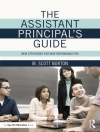Keep thinking…keep learning in different settings
In Peter Liljedahl’s bestselling Building Thinking Classrooms in Mathematics: 14 Teaching Practices for Enhancing Learning, readers discovered that thinking is a precursor to learning. Translating 15 years of research, the anchor book introduced 14 practices that have the most potential to increase student thinking in the classroom and can work for any teacher in any setting.
But how do these practices work in a classroom with social distancing or in settings that are not always face-to-face? This follow-up supplement will answer those questions, and more. It walks teachers through how to adapt the 14 practices for 12 distinct settings, some of which came about as a result of the COVID-19 pandemic. This guide:
- Provides the what, why, and how to adapt each practice in face-to-face settings that require social distancing, fixed seating, or small class sizes; synchronous and asynchronous virtual settings; synchronous and asynchronous hybrid settings; independent learning; and homeschooling.
- Includes guidance on using thinking classroom practices to support students in unfinished learning in small groups and one-on-one teaching or tutoring.
- Offers updated toolkits and a recommended order for the implementation of the practices for each of the settings.
قائمة المحتويات
About the Author
Introduction
Category 1: Face-to-face
Chapter 1: Building a Thinking Classroom with Social Distancing
Chapter 2: Building a Thinking Classroom with Fixed Seating
Chapter 3: Building a Thinking Classroom with Small Class Sizes
Category 3: Virtual
Chapter 4: Building a Thinking Classroom for a Synchronous Virtual Setting
Chapter 5: Building a Thinking Classroom in an Asynchronous Virtual Setting
Category 2: Hybrid
Chapter 6: Building a Thinking Classroom for an Asynchronous Hybrid Setting
Chapter 7: Building a Thinking Classroom for a Synchronous Hybrid Setting
Category 4: Other Learning Environments
Chapter 8: Building a Thinking Classroom for Independent Learning
Chapter 9: Building a Thinking Classroom for Homeschooling
Category 5: Supporting Learners
Chapter 10: Supporting Students with Unfinished Learning of Previous Concepts in a Thinking Classroom
Chapter 11: Supporting Students with Unfinished Learning of the Current Concepts in a Thinking Classroom
Chapter 12: Thinking Classroom Practices for One-on-One Teaching
عن المؤلف
Dr. Peter Liljedahl is a Professor of Mathematics Education in the Faculty of Education at Simon Fraser University and author of the best-selling book, Building Thinking Classrooms in Mathematics (Grades K-12): 14 Teaching Practices for Enhancing Learning. Peter is a former high school mathematics teacher who has kept his research interest and activities close to the classroom. With a passion for fostering deep mathematical thinking and problem-solving skills, Peter has dedicated his career to reshaping classroom environments. His work emphasizes thinking, collaborative learning, and problem solving, leading to more effective and meaningful mathematics education experiences for students of all ages. Through his research-based innovative teaching methods, Peter continues to inspire educators worldwide to create dynamic and thought-provoking learning spaces. He consults regularly with teachers, schools, school districts, and ministries and departments of education on issues of teaching and learning, problem solving, assessment, numeracy, and building thinking classrooms. Peter has authored or co-authored 13 books, 45 book chapters, and 45 research articles on a wide range of topics including creativity in mathematics, the role of beliefs in the teaching and learning mathematics, and building thinking classrooms. He is the recipient of the Cmolik Prize for the Enhancement of Public Education (2017), The Margaret Sinclair Memorial Award Recognizing Innovation and Excellence in Mathematics Education (2018), and the Læringsprisen for Changing the way we think about Education in Denmark (2022).












